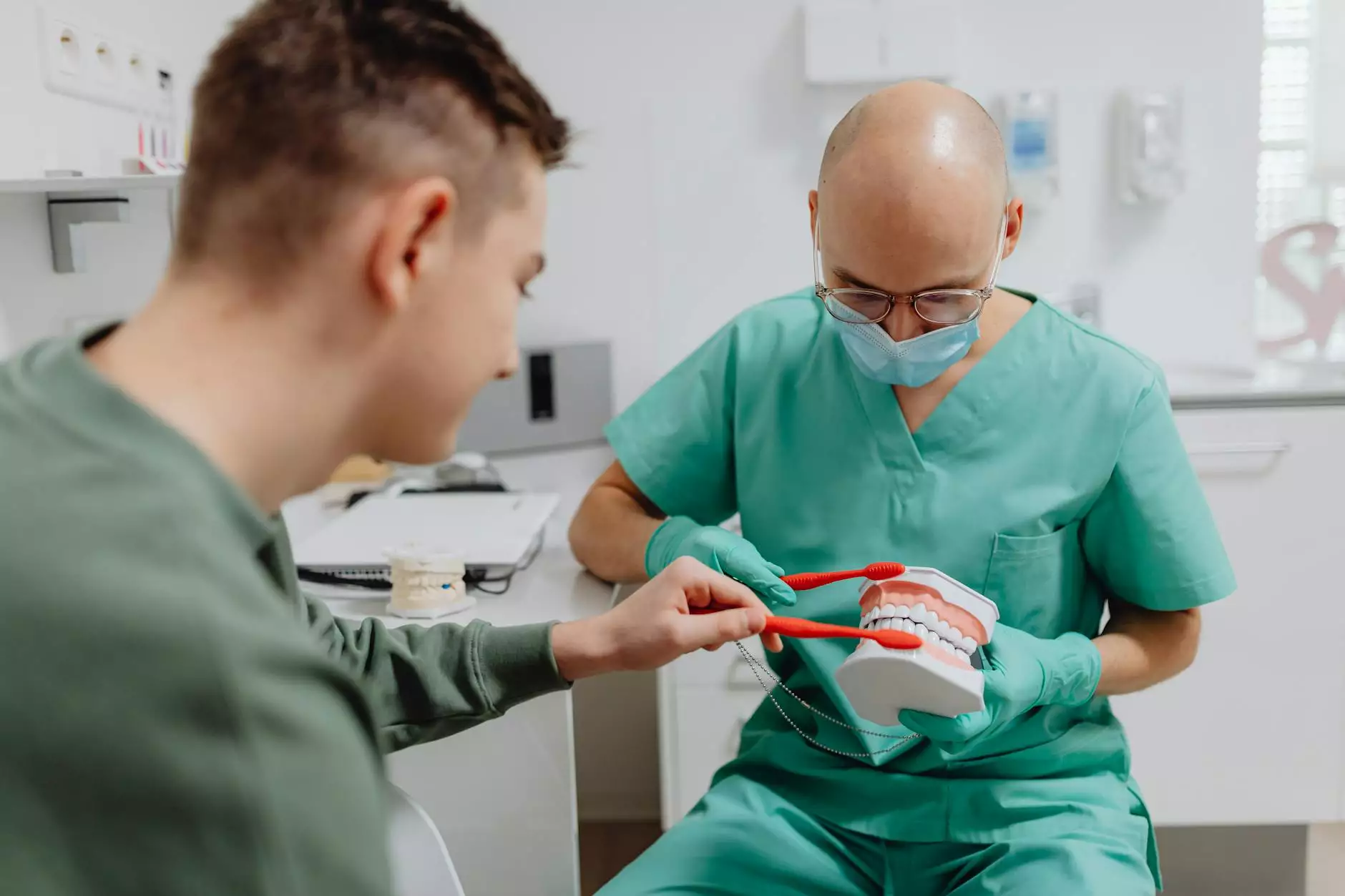Stomach Cancer Treatment: Comprehensive Insights and Options

Stomach cancer, also known as gastric cancer, is a serious health condition that affects millions of individuals globally. Understanding stomach cancer treatment options is crucial for patients and their loved ones as they navigate through this challenging phase. This comprehensive article aims to provide detailed insights into the various treatment modalities available for stomach cancer, the advancements in care, and the importance of a multidisciplinary approach to ensure optimal outcomes.
Understanding Stomach Cancer
Stomach cancer typically begins in the inner lining of the stomach and may spread to nearby organs. The exact cause of stomach cancer is not fully understood; however, factors such as smoking, dietary choices, and chronic gastric conditions significantly contribute to its development. Early detection and treatment are vital for improving survival rates.
Types of Stomach Cancer
The most common type of stomach cancer is adenocarcinoma, which originates in the glandular cells of the stomach lining. Other less common types include:
- Lymphoma: A cancer of the immune system tissue that can occur in the stomach.
- Gastrointestinal stromal tumors (GISTs): Rare tumors that arise from the connective tissue in the stomach.
- Carcinoid tumors: Slow-growing tumors that can also form in the stomach.
Diagnosis of Stomach Cancer
Early diagnosis of stomach cancer can significantly influence treatment outcomes. Diagnostic procedures often include:
- Endoscopy: A procedure that allows doctors to view the stomach lining and take tissue samples for biopsy.
- Barium swallow: An X-ray exam where a patient drinks a barium solution to highlight abnormalities in the stomach.
- CT scans: Imaging tests that provide detailed pictures of the stomach and surrounding areas.
- Staging tests: Tests to determine the extent of cancer spread within the stomach and to other organs.
Stomach Cancer Treatment Options
The treatment for stomach cancer is highly individualized and depends on several factors, including the stage of cancer, the patient’s overall health, and preferences. The main treatment options include:
Surgical Treatment
Surgery is often the primary treatment for stomach cancer, especially in the early stages. The types of surgical procedures include:
- Partial gastrectomy: Removal of a part of the stomach.
- Total gastrectomy: Complete removal of the stomach along with surrounding tissues.
- Lymph node dissection: Removal of nearby lymph nodes to prevent further spread of cancer.
Surgical treatment aims to remove all cancerous cells and improve the patient’s prognosis. However, surgery may not always be feasible, particularly if the cancer is diagnosed at an advanced stage.
Chemotherapy
Chemotherapy involves using strong medications to kill cancer cells or stop their growth. It can be administered:
- Before surgery (neoadjuvant chemotherapy) to shrink tumors.
- After surgery (adjuvant chemotherapy) to eliminate remaining cancer cells.
- As the main treatment for advanced stages when surgery isn’t an option.
Chemotherapy regimens are personalized and may include a combination of drugs to enhance effectiveness and reduce resistance.
Radiation Therapy
Radiation therapy uses high-energy rays to target and kill cancer cells. It is often used in combination with other treatments and can be effective in:
- Reducing the size of tumors before surgery.
- Controlling symptoms in advanced cancer.
The treatment plan is tailored to the individual's specific condition, and radiation may be given externally or internally.
Targeted Therapy
Targeted therapy is a newer approach that uses drugs designed to specifically target cancer cell characteristics. This treatment option is beneficial for patients whose tumors express certain markers, such as HER2. Targeted therapies can be used in conjunction with chemotherapy for enhanced effectiveness.
Immunotherapy
Immunotherapy is an exciting area of research that harnesses the body's immune system to fight cancer. Treatments like immune checkpoint inhibitors have shown promise in treating certain types of stomach cancer, especially in patients with specific genetic mutations.
Supportive Care and Palliative Treatment
Supportive care is an essential part of stomach cancer management, focusing on alleviating symptoms and enhancing the quality of life. This may involve:
- Pain management strategies.
- Nutritional support and counseling.
- Emotional support and counseling services.
- Clinical trials for access to innovative therapies.
Palliative care is also crucial for patients with advanced stomach cancer, ensuring they receive comprehensive support tailored to their needs.
Advancements in Stomach Cancer Treatments
The landscape of stomach cancer treatment is continually evolving, with ongoing research leading to the introduction of new therapies and techniques. Recent advancements include:
- Minimally invasive surgical techniques: Such as laparoscopic surgery, which reduces recovery time and minimizes pain.
- Combination therapies: Research into using combinations of chemotherapy, targeted therapy, and immunotherapy to enhance effectiveness.
- Personalized medicine: Tailoring treatment based on the patient’s genetic makeup and tumor profile, leading to better outcomes and fewer side effects.
The Importance of a Multidisciplinary Approach
Collaborating with a multidisciplinary team is critical in managing stomach cancer effectively. This team often includes:
- Oncologists specializing in gastric cancer.
- Surgeons with expertise in gastrointestinal surgeries.
- Nutritionists for dietary management.
- Palliative care specialists to enhance quality of life.
This holistic approach ensures that all aspects of the patient’s well-being are addressed, from physical to emotional health, leading to improved overall outcomes.
Living with Stomach Cancer: Coping Strategies
Facing a diagnosis of stomach cancer can be overwhelming. Here are some coping strategies for patients and their families:
- Stay informed about the disease and treatment options.
- Engage in support groups to connect with others facing similar challenges.
- Focus on nutrition and maintaining a healthy lifestyle.
- Communicate openly with healthcare providers to address concerns.
- Practice stress-reduction techniques, such as mindfulness and meditation.
Conclusion
Stomach cancer treatment is a multifaceted process that requires careful consideration and a tailored approach to each patient’s unique circumstances. With advancements in treatment modalities and a greater understanding of this disease, patients now have more options than ever. Early detection, a multidisciplinary team, and supportive care play vital roles in enhancing patient outcomes and quality of life. For those affected by stomach cancer, staying informed and actively participating in care decisions is crucial.
If you or a loved one is seeking guidance on stomach cancer treatment, we encourage you to visit OncologicalSurgery.net for professional insights and support.









